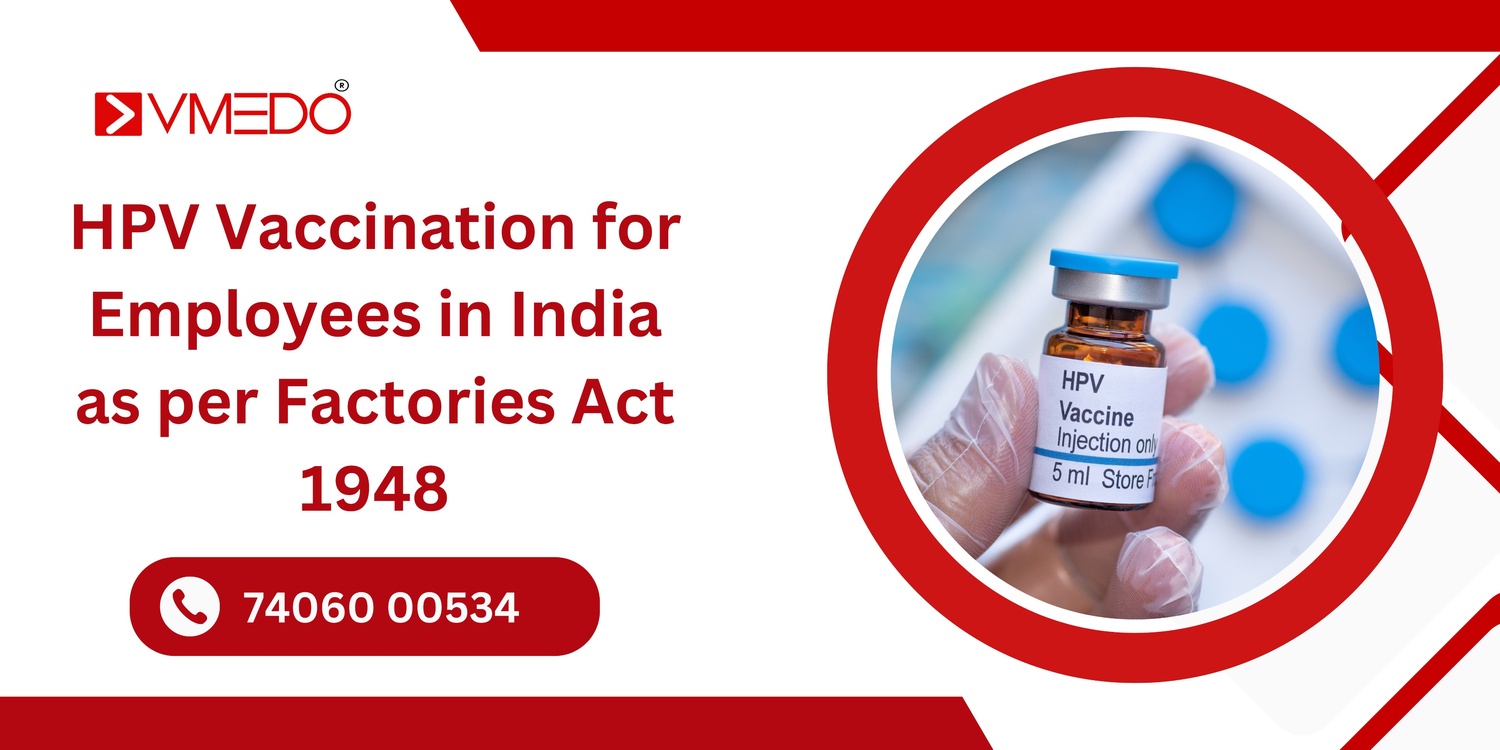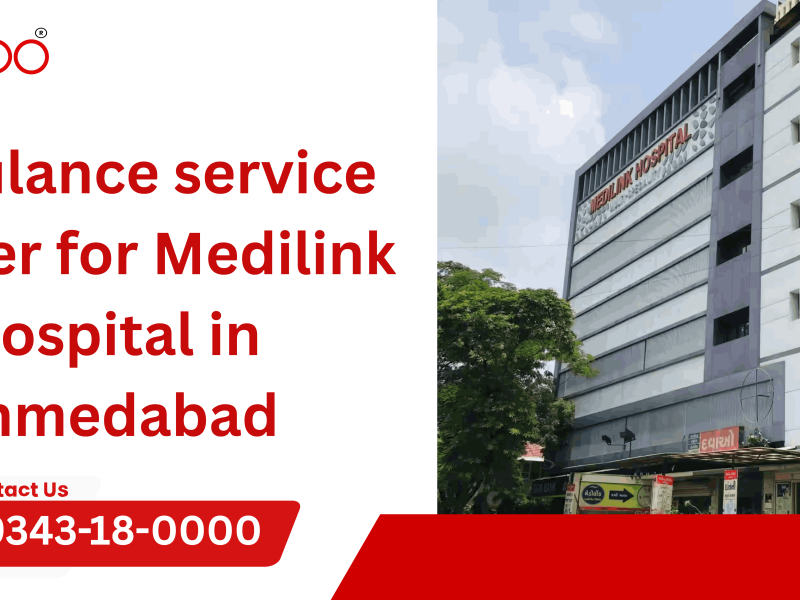In today’s workplace, ensuring employee health and wellness is a top priority for many organizations. One aspect of preventive healthcare that is gaining importance is vaccination against the Human Papillomavirus (HPV). HPV is a common virus with significant health implications, including cervical cancer and other HPV-related diseases. In this blog, we’ll delve into why HPV vaccination is crucial for employees, its benefits, the vaccination process, and how organizations can implement HPV vaccination programs in India. At VMEDO, we offer tailored workplace vaccination programs to help organizations prioritize employee health. Contact us at +91 74060 00534 to set up your program today.
What is HPV and Why is it a Concern?
Human Papillomavirus (HPV) is a group of more than 200 related viruses, some of which can lead to serious health issues. While most HPV infections are asymptomatic and resolve on their own, certain high-risk types can cause:
- Cervical cancer (the second most common cancer among women worldwide).
- Other cancers include vaginal, vulvar, anal, penile, and oropharyngeal cancers.
- Genital warts.
HPV is primarily transmitted through sexual contact. Given its high prevalence and potential severity, vaccination against HPV is a vital preventive measure.
Importance of HPV Vaccination for Employees
Workplaces are ideal environments to promote preventive healthcare, including vaccinations. Here’s why:
- Prevention of Serious Diseases:
- HPV vaccination can prevent up to 90% of cervical cancer cases and reduce the risk of other cancers caused by HPV.
- Cost-Effective Healthcare:
- Early prevention through vaccination reduces long-term healthcare costs associated with treating HPV-related conditions.
- Enhanced Employee Productivity:
- Healthy employees are more productive, have fewer sick days, and contribute to a more efficient workplace.
- Corporate Social Responsibility (CSR):
- Promoting HPV vaccination showcases an organization’s commitment to employee health and public welfare.
Benefits of HPV Vaccination
For Employees:
- Health Protection: Safeguards against HPV-related cancers and genital warts.
- Peace of Mind: Reduces anxiety about HPV-associated health risks.
- Empowerment: Encourages individuals to take proactive steps toward their health.
For Employers:
- Improved Workplace Health: Reduces the risk of HPV-related diseases among employees.
- Positive Workplace Culture: Demonstrates care for employee well-being, boosting morale.
- Attracting and Retaining Talent: Health-focused initiatives can enhance an organization’s reputation.
Vaccination Schedule and Administration
- Dosage:
- For individuals aged 9-14: Two doses, spaced 6-12 months apart.
- For individuals aged 15 and above Three doses over six months.
- Administration:
- The vaccine is administered as an intramuscular injection, typically in the upper arm.
Available HPV Vaccines in India
In India, the following HPV vaccines are approved and widely available:
- Cervarix:
- Protects against HPV types 16 and 18, which are responsible for the majority of cervical cancer cases.
- Gardasil:
- Covers HPV types 6, 11, 16, and 18, offering protection against both cancers and genital warts.
- Gardasil 9:
- Provides broader coverage against nine HPV types, including high-risk strains.
Cost of HPV Vaccination in India
The cost of HPV vaccines varies depending on the brand and location. On average:
- Cervarix: ₹2,000-₹4,000 per dose.
- Gardasil: ₹3,000-₹5,000 per dose.
- Gardasil 9: ₹4,000-₹7,000 per dose.
Employers can explore group vaccination programs to negotiate better rates with healthcare providers.
Implementing HPV Vaccination Programs in the Workplace
1. Awareness Campaigns:
- Educate employees about HPV, its risks, and the benefits of vaccination through workshops, webinars, and informational materials.
2. Partnering with Healthcare Providers:
- Collaborate with hospitals, clinics, or vaccination centers to provide on-site vaccination services.
3. Subsidized Vaccination Programs:
- Offer financial support or cover vaccination costs as part of employee benefits.
4. Employee Engagement:
- Encourage participation through incentives, such as wellness points or recognition.
5. Confidentiality and Consent:
- Ensure vaccination is voluntary and maintain employee confidentiality throughout the process.
Role of VMEDO in Promoting HPV Vaccination
At VMEDO, we understand the importance of preventive healthcare. Our team offers tailored vaccination drives for organizations, ensuring:
- Professional administration of vaccines.
- Comprehensive employee awareness programs.
- Affordable and convenient solutions for employers.
To learn more about organizing an HPV vaccination drive for your workplace, contact us at +91 74060 00534 or visit our website at VMEDO for more details.
Which Types of Companies Need HPV Vaccination for Employees?
HPV vaccination is relevant for a variety of industries and organizations where employee health is a priority. Here are the types of companies that should consider including HPV vaccination in their wellness programs:
1. Healthcare Providers
Hospitals, clinics, and nursing homes employ medical staff who may be at higher risk of exposure to HPV due to their work environment. Vaccination ensures their safety and reduces the risk of transmission.
2. Educational Institutions
Schools, colleges, and universities with a large workforce can promote HPV vaccination to safeguard staff and set an example for students and their families.
3. Manufacturing and Industrial Companies
With a significant number of employees, these companies often implement workplace health programs. Vaccination campaigns can reduce absenteeism caused by HPV-related illnesses.
4. IT and Corporate Offices
Corporate organizations with wellness initiatives can include HPV vaccination to foster a culture of preventive healthcare among employees.
5. FMCG and Retail
Employers in fast-moving consumer goods (FMCG) and retail sectors, which involve customer-facing roles, can benefit from ensuring their employees are protected against preventable diseases.
6. NGOs and Social Organizations
Organizations focused on public health and welfare should advocate for HPV vaccination to support community health.
7. Government Agencies
State and central government departments managing large employee bases can adopt HPV vaccination to promote public health policies within their workforce.
VMEDO Services
- Annual Health Checkups for Employees (Factories Act Compliance) in India
- Pre-Employment Health Checkups in India
- Lung Function/PFT Tests for Employees in India
- Blood Tests for Employees (Factories Act Compliance) in India
- ECG Tests for Employees in India
- Audiometry Tests for Employees in India
- Eye/Vision Tests for Employees in India
- Medical Fitness Certificates (Factories Act Compliance) in India
- HIV/HBs Tests for Employees in India
- Chest X-Rays for Employees in India
- Hepatitis B Vaccinations in India
- HPV Vaccinations in India
- Tetanus (TT) Vaccinations in India
- Influenza Vaccination for Employees in India
- Pneumococcal Vaccination for Employees in India
Frequently Asked Questions (FAQs) About HPV Vaccination for Employees in India
1. What is HPV, and why is vaccination important?
HPV (Human Papillomavirus) is a virus that can cause genital warts and various cancers, including cervical, throat, and anal cancers. Vaccination helps prevent infections from high-risk HPV strains and reduces the risk of these diseases.
2. Who should get the HPV vaccine?
The HPV vaccine is recommended for individuals aged 9 to 45 years. It is most effective when administered between the ages of 9 and 14, but adults who have not been previously exposed can also benefit.
3. Is the HPV vaccine safe?
Yes, the HPV vaccine is extensively tested and has a strong safety record. Common side effects include mild pain or redness at the injection site, which typically resolves quickly.
4. Why is HPV vaccination important for employees?
HPV vaccination protects employees from HPV-related diseases, reduces absenteeism due to illness, and fosters a healthier workplace environment.
5. How many doses of the HPV vaccine are required?
- Aged 9-14: Two doses, six months apart.
- Aged 15-45: Three doses over six months.
6. Can men receive the HPV vaccine?
Yes, HPV vaccination is recommended for both men and women as it prevents cancers and genital warts caused by the virus and reduces overall transmission.
7. What are the types of HPV vaccines available in India?
- Cervarix: Protects against HPV types 16 and 18.
- Gardasil: Protects against types 6, 11, 16, and 18.
- Gardasil 9: Covers nine types, offering the broadest protection.
8. What is the cost of HPV vaccination in India?
The cost ranges from INR 2,000 to 4,000 per dose, and a complete vaccination course typically costs INR 6,000 to 12,000.
9. Can pregnant women take the HPV vaccine?
No, pregnant women are advised to delay vaccination until after delivery. However, the vaccine is safe for breastfeeding mothers.
10. Will health insurance cover the HPV vaccine?
Some corporate health insurance plans may cover vaccination costs. Employers should verify coverage options with insurance providers.
11. How can companies organize HPV vaccination drives?
Companies can partner with healthcare organizations like VMEDO to conduct on-site vaccination camps, educate employees, and conveniently provide vaccinations.
12. Does the HPV vaccine eliminate the need for cervical cancer screenings?
No, women should still undergo regular screenings, such as Pap smears, as the vaccine does not protect against all HPV strains.
13. Are there any side effects of the HPV vaccine?
Common side effects include mild pain, redness, or swelling at the injection site, low-grade fever, and fatigue. Serious side effects are infrequent.
14. What if an employee has already been exposed to HPV?
The vaccine can still be beneficial as it may protect against other strains the individual hasn’t been exposed to.
15. Why choose VMEDO for HPV vaccination drives?
VMEDO provides end-to-end support, including awareness programs, professional vaccine administration, and affordable pricing for workplace vaccination drives. Contact us at +91 74060 00534 or visit www.vmedo.com to learn more.



